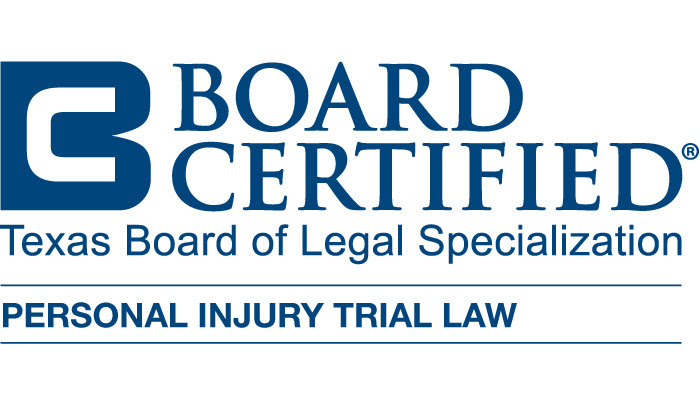When faced with a personal injury case in Texas, one of the most critical decisions is whether to settle the case outside of court or proceed to trial. This decision carries profound implications, affecting not only the potential compensation but also the time, cost, and emotional toll of the legal process. Understanding the nuances of both settlement and trial options is crucial for anyone involved in a personal injury case. By exploring these options, you can make an informed decision that aligns with your interests and goals.


Understanding the Settlement Process in Texas Personal Injury Cases
Settlement is a common outcome in many personal injury cases. This process involves negotiating an agreement between the injured party and the party responsible for the injury, often facilitated by their respective attorneys. The aim is to reach a mutually acceptable resolution without the need for a trial. In Texas, as in other states, settlements can be reached at any stage of the legal process, from before a lawsuit is filed to even after a trial has begun but before a verdict is rendered.
The settlement process typically begins with a demand letter from the injured party’s attorney to the insurance company or the defendant. This letter outlines the facts of the case, the injuries sustained, and the compensation sought. The insurance company may respond with a counteroffer, and negotiations ensue. The goal is to reach a settlement that fairly compensates the injured party for their losses, including medical expenses, lost wages, pain and suffering, and other damages.
One of the primary advantages of settling a case is the certainty it provides. Unlike a trial, where the outcome is uncertain and may result in a lower award or even no compensation at all, a settlement guarantees a specific amount of compensation. Settling also allows both parties to avoid the time, expense, and stress associated with a trial. Additionally, settlements are often quicker, allowing the injured party to receive compensation sooner and begin the process of moving forward with their life.
However, settlements also have potential drawbacks. The compensation offered in a settlement may be less than what could be awarded at trial. In some cases, the responsible party or their insurance company may offer a low settlement in the hopes that the injured party will accept it to avoid the hassle of a trial. It is essential to carefully evaluate any settlement offer, considering the full extent of your injuries and future needs before accepting.
My focus is to give a voice to families who have suffered a wrongful death or a serious injury to a family member caused by an 18-Wheeler, commercial truck, or a drunk driver. Contact us today, we can help you.Helping Injury Victims for Over 25 Years
Proceeding to Trial in Texas Personal Injury Cases
While many personal injury cases in Texas are settled outside of court, some cases proceed to trial. This option may be necessary if the parties cannot reach a settlement or if the injured party believes that a trial could result in a more favorable outcome. A trial involves presenting the case before a judge or jury, who will determine the outcome based on the evidence and legal arguments presented by both sides.
One of the most significant advantages of going to trial is the potential for a higher compensation award. In some cases, a jury may award damages that far exceed what was offered in settlement negotiations. This is particularly true in cases involving severe injuries or clear evidence of negligence by the responsible party. A trial also allows the injured party to seek punitive damages, which are intended to punish the defendant for particularly egregious conduct and deter similar behavior in the future.
Another advantage of a trial is the opportunity for the injured party to have their day in court. For some, the chance to present their case before a judge or jury and seek justice is an important aspect of the legal process. A trial can also provide a sense of closure, as the injured party has the opportunity to tell their story and hold the responsible party accountable for their actions.
However, trials come with significant risks and challenges. One of the most notable is the uncertainty of the outcome. Unlike a settlement, where both parties agree on the compensation amount, a trial’s result is unpredictable. A judge or jury may award less than what was offered in settlement negotiations or even rule in favor of the defendant, leaving the injured party with no compensation at all.
Trials are also time-consuming and costly. The legal process can drag on for months or even years, with numerous court appearances, depositions, and other legal procedures. The costs associated with a trial, including attorney fees, witness fees, and court costs, can add up quickly. Additionally, the emotional toll of a trial can be significant, as the injured party must relive the trauma of the injury and endure the stress of a lengthy legal battle.
Factors to Consider When Choosing Between Settlement and Trial
Deciding whether to settle or go to trial in a Texas personal injury case is a complex decision that should be made after carefully considering all the factors involved. One of the most critical considerations is the strength of your case. If the evidence strongly supports your claim and the likelihood of winning at trial is high, it may be worth pursuing a trial to seek a higher compensation award. However, if the evidence is weak or there are uncertainties about the outcome, a settlement may be a safer and more predictable option.
The severity of your injuries and the extent of your damages are also crucial factors to consider. If you have sustained severe injuries that will require ongoing medical treatment or have resulted in permanent disability, you may need a higher compensation amount to cover your future expenses. In such cases, a trial may offer the potential for a larger award. On the other hand, if your injuries are less severe, a settlement may provide sufficient compensation to cover your immediate needs without the risks and delays associated with a trial.
Another important factor is your financial situation. If you are facing significant medical bills, lost wages, and other expenses related to your injury, you may need compensation sooner rather than later. In such cases, a settlement can provide a quicker resolution, allowing you to cover your expenses and move forward with your life. However, if you can afford to wait for a trial, the potential for a higher award may be worth the delay.
Your emotional and psychological readiness for a trial is also essential. Going to trial can be a stressful and emotionally draining experience, requiring you to relive the details of your injury and face cross-examination by the defense. If you are not prepared for the challenges of a trial, a settlement may be a less stressful and more straightforward option.
Related Videos
Choosing a Personal Injury Attorney
Types of Compensation in a Truck Accident Claim
The Role of Your Attorney in Navigating Settlement vs. Trial Decisions
Having an experienced personal injury attorney on your side is crucial when deciding between settlement and trial options. Your attorney will evaluate the strength of your case, gather evidence, and negotiate with the insurance company or defense counsel on your behalf. They will also advise you on the potential risks and benefits of settling versus going to trial, helping you make an informed decision that aligns with your best interests.
An experienced attorney can also guide you through the legal process, ensuring that all deadlines are met, and legal procedures are followed. If your case goes to trial, your attorney will represent you in court, presenting your case to the judge or jury and advocating for the maximum compensation you deserve. Your attorney’s knowledge and experience can make a significant difference in the outcome of your case, whether through settlement or trial.
Making the Right Decision for Your Texas Personal Injury Case
Ultimately, the decision to settle or go to trial in a Texas personal injury case is a personal one that depends on various factors, including the strength of your case, the severity of your injuries, your financial situation, and your emotional readiness for a trial. Both options have their advantages and disadvantages, and it is essential to carefully weigh these factors before making a decision.
If you are facing a personal injury case in Texas, consulting with an experienced attorney is one of the most important steps you can take. Your attorney will help you understand your legal options, assess the potential risks and rewards of settlement versus trial, and guide you through the process to achieve the best possible outcome for your case.
If you or a loved one has been injured in an accident in Texas and are facing the decision of whether to settle your case or go to trial, the experienced attorneys at Willumsen Law Firm, P.C. are here to help. Our team understands the complexities of personal injury cases and is dedicated to fighting for the compensation you deserve. Contact us today for a consultation to discuss your case and explore your options. Let us help you navigate the legal process and achieve the justice and compensation you need to move forward with your life.



